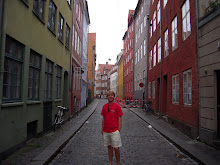For Marshall Will Kane, fate has a time stamp. It’s at noon, better known as the time when his fearsome enemy Frank Miller, whom he brought to justice, arrives on the train. This news comes directly after Kane was just married, ready to leave the small New Mexico town and open up a store with new, pacifist Quaker wife Amy. Kane tries to leave with his beautiful bride, but duty ropes him back into town; he is a man of honor and, to the dismay of his wife, his obligation to justice is too great.

On Kane’s return, however, he finds the town he dedicated so much of his life to hesitant, and even openly hostile, to the idea of supporting him. The local bartender and hotelier hate Kane for driving away business as outlaws attract attention (and drinkers), and Kane’s locking up of Miller puts them in dire economic straits. His second in command Harvey harbors jealousy for not being made Marshall and believes that Kane holds a grudge against him for shacking up with former flame Helen Ramirez. Kane’s friend hides away in the comfort of his own home, sending his wife to fabricate a lie when Kane comes a knockin. When Kane interrupts a church service, he finds some willing to help, but they are quickly dissuaded by impassioned speeches made by the minister and a churchgoer. “You’re asking me to tell me people to go out and kill, maybe gets themselves killed. I’m sorry. I don’t know what to say,” the minister relates. The only person jumping at the chance to help Kane is, ironically enough, a 14-year-old boy.
Miller, a man who hasn’t even arrived controls the entire psyche of the town. This power is shown by the frequent shots of an empty chair in Kane’s desk. Director Fred Zinnemann zooms into the empty chair, giving this nothingness, this mere presence, the thematic reigns of the film. If Kane wasn’t already feeling permanently abandoned, staring at an unavoidable fate, his trip to former Marshall Martin Howe’s home does absolutely no better. Martin gives his existential, meaningless outlook on existence, further sending Kane into a crisis: “You end up dying alone on a dirty street. And for what? For nothing,” Martin tells Kane. “Deep down, they don’t care. They just don’t care,” he adds. Zinnemann visualizes the town’s abandonment, the lack of care and compassion, when Kane steps out into the middle of the street and the camera, in a masterful crane shot, pulls back to reveal how alone he really is. The streets are abandoned. It’s a ghost town: no people and no beliefs. Except for Kane, of course.

Against all odds it seems, Kane soldiers on, symbolizing the ultimate “man”. As Helen tells Harvey: “when he dies, this town dies.” Of course, after the huge production is over, the town rushes out, all having been safely watching the production from the buildings surrounding the gunfight. Kane refuses to say a word after saving his wife from the gunpoint of an outlaw, and simply leaves. This time, it’s the town that stands around, perplexed, abandoned and, as an entity, alone, looking like children who just lost their father.

No comments:
Post a Comment